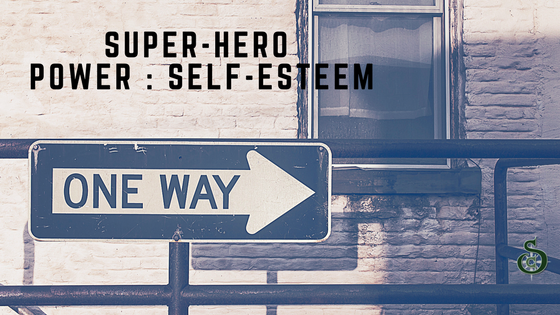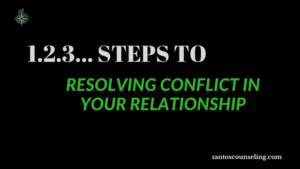Therapy For Teens In Greensboro, NC
If your teen has ever said…
- “No one understands me”
- “I’m ugly”
Then he/she is likely experiencing emotional difficulties with depression or anxiety. As a teen counselor, I strive to help teens build superhero-like self-esteem powers. Just like Superman can withstand a bullet, your teen can learn to withstand the pressures of life.
Counseling To Improve Self-Esteem
Self-esteem simply means loving yourself during the good days and the not-so-good days. Parents can help their teens overcome emotional challenges that hurt self-esteem by focusing on creating genuine relationships, self-care habits, and building confidence.
Help your teen build a healthy network of friends and support persons who truly love and care about him/her. Healthy relationships start with preserving self-respect in our own relationships and with ourselves. Often, the challenge for teens can be external. These are people, that we hope to build relationships with can disappoint us.
Teens should understand that they must focus on their self-respect to establish healthy relationships. This can be done by focusing on questions like “Is this relationship fair to me?” or “Am I compromising my self-worth in this relationship?”
I like to think that we all have some sort of “spider-sense”; yes, the same spider sense that Spider-man has. Our “spider sense” acts like an alarm reacting to feelings of discomfort.
Teens often face situations that trigger the spider-sense due to the social complexities that follow them. For example, if you are asked to meet up with some friends after afterschool, you do not need to feel “forced” to engage in the activity or “feel the need to apologize” if you are unable to go. Instead, it’s simply okay to say no. To say that you cannot go because you want to take time for yourself. Maybe for homework or self-care.
When I work with teens in counseling sessions, one of the core areas of focus is building value. I work with teens to learn their values and understand how that impacts relationships. Without it, relationships can become problematic often leading teens to feel “pressured”, “bullied”, or “discomfort”. As a teen, or parent to a teen, try to focus on what your values are and how they line up with relationship building. For instance, you could focus on “how you want to be treated in a relationship” or “deal breakers in relationships”.
Building worth in relationships demands honesty. What this means is that at times transparency and truth must be part of the relationship. For example, if you feel mistreated in the relationship, discuss this with your friend versus allowing time to pass. Be real. Be your genuine self without worry that it’ll end the relationship.
Relationships will have their ups and downs. They will be tricky and at times push you to test boundaries. Often the hurt in relationships takes place when we feel lonely or are desperately fishing for a friend. Remember, focus on your values, truth, and self-respect all as core parts of building worth in your relationship.
Lastly, as a fun activity go back to the discussion above regarding value. Consider values as a “bill of rights for relationships”. Create your own bill of rights by writing down a list of your expectations in relationships. If you would like a printable bill click here.
How Parents Can Help Teens During Counseling
Parents can support their teens to feel better and happier with self-care. Self-care MUST be a part of your life.
I personally love exercising in the form of going for long runs. Something about being outside, with nature really speaks to me. The exercise acts as a buffer, allowing me to think clearly and manage my stress.
Life is going to have ups and downs. To remain balanced, we must set aside time each day to take care of ourselves. Educating teens on self-care can help them remain centered throughout life and the many difficult moments that lie ahead.
Parents can model self-care habits and behaviors for their teens as a “show and tell” way. Below is a list of self-care therapy strategies that may work for you:
Self-Care Skills For Your Mental Health
- Do something different that you normally do not do. Pulling your mind away from the normal routine can be extremely therapeutic to the body and mind. Examples include: walking around the mall, cleaning the windows at home or rearranging the bedroom.
- Lending a helpful hand to others can help you feel positive and centered. Examples include: writing a thank you note to a friend, making coffee for the family or cleaning up after dinner when it’s not your turn.
- Practicing the art of daydreaming can allow you to get lost in your thoughts. Examples include: thinking about your favorite vacation, imagining yourself flying, or counting the number of blue cars that pass by as you sit in the back seat.
- Counting your blessings provides a feeling of gratitude. Examples include: comparing your struggles or situation to those less fortunate.
As a counselor, I truly love working with teens because I was a teen not too long ago. I’ve experienced sadness, anxiety, and emotional challenges. Parents can help their teens overcome emotional challenges brought on by sadness, worry, bullying, or self-esteem issues.
Review the post above. Focus on self-esteem and self-care skills daily. Educate your teen to surround him/herself with people who are fun, loving, and who they truly want to be around. If you enjoyed this article, feel free to read an actionable guide to helping teens build self-esteem and confidence.
Below are 4 ways to help your teen build esteem:
- Awareness is the key to recognition, without it we can truly become “stuck” in a negative cycle of thoughts and behaviors. Teens can improve their self-esteem by learning the impact of hurtful self-directed statements like “I’m a failure” or “I just can’t do it”. Help your teen by “showing” them when they engage in destructive behavior versus “judging” the action.
- Mindfulness plays a vital role in helping teens understand how and when judgment is taking place. A fun activity to do with your teen is the “coin jar”. Your teen is to place a coin into the jar each time he or she recognizes judgment taking place. This activity supports in “recognizing” when judgment takes place and “promoting” a healthy shift in awareness and compassion.
- One of my favorite activities to do with teens is creating clarity. Teens often make statements based on judgment versus compassion. This activity helps teens learn how to shift hurtful judgmental statements to supportive compassionate statements. For instance, “The music you listen to sucks!” versus a healthier alternative “We have different interests in music”.
- The last strategy to help your teen improve self-esteem is focused on practice, encouragement, and support. Practice each strategy learned with your teen as often as needed. Encourage your teen to shift their viewpoint to one filled with love, kindness, and compassion. Lastly, support your teen along their journey. It’ll be worth it!





